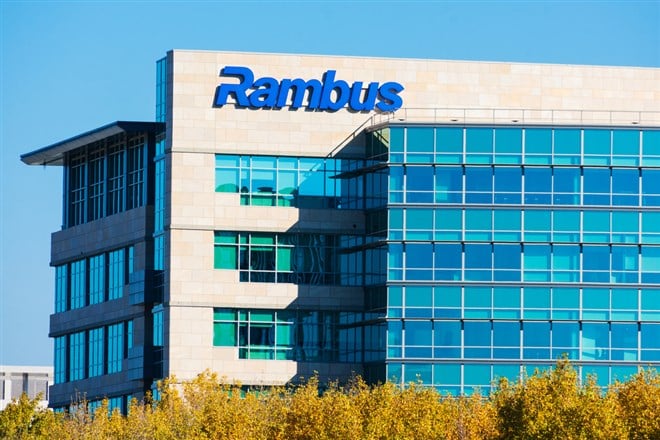
In early November, Rambus Inc. (NASDAQ: RMBS) revealed that its share repurchase program—worth about $100 million—should be completed by March or maybe April. News of this helped shore up the share price, not that the company needed it. After all, the company is growing faster than the median of its industry sector. More importantly, perhaps, Rambus has a business model that remains profitable, especially in the long term; meaning that the stock has excellent future potential (justifying its [moderate] BUY rating).
Rebounds and Growth are Consistent RMBS Trends
RMBS hit its most recent low around early July when the stock bottomed out at around $20. It shot up again, quickly, to a high of $28 around the middle of August, before tumbling again, back to just shy of $25. a few ups and downs before the stock shot up again in the middle of October, starting at $25.85, to reach its current value.
The recent escalation seems to indicate that yet more growth is coming. While the stock is likely to continue its wavering, it will do so in an upward trend. Some analysts even expect the stock could continue its climb up to $50 by July in the coming year. The stock may not continue here but, as history seems to attest, RMBS will correct, adjust, and continue climbing later into next year.
Earnings Hardship is Recent But, More Importantly, Should Be Temporary
Over the past few years, RMBS earnings have struggled. Although earnings for 2018 ($0.92) beat the range high by a penny, and earnings for the next year ($0.97) beat the estimate (and range) by four cents, things started to change in 2020. Sure, the estimate was $1.17 inside of a very small range ($1.16 to $1.18), but RMBS met it, so the fact it didn't soar past the range does not appear to be too significant. However, by the end of the 2021 fiscal year, earnings fell to $0.36. This is significantly lower than the range low of $1.35.
Earnings for the most recent quarter (Q3 2022) is the best they've seen in a while. This is the first quarter in at least a year since earnings beat the estimate (and, in this case, the range as well), at $0.43. This new benchmark could be just the first of many, though, as RMBS posted an earnings loss of $-0.02 in Q4 of 2021, when analysts estimated earnings would be $0.37 (without a range).
By Q1 of 2022, earnings had recovered, though $0.21 still couldn't match the $0.37 estimate. Yes the earnings estimate (and range) were the same between the end of 2021 and the beginning of 2022.
For Q2 of 2022, earnings finally hit $0.37, but the estimate (and the range) for this quarter was $0.40. Still, this could be the upward momentum they need to warrant the moderate Buy rating they have received.
Competition is Broad, but Rambus Inc. Is Stable
As a semiconductor manufacturer, Rambus Inc. has broad competition across the industry. Since they not only make DDR memory interface chips (DDR5, DDR4, DDR3) but also facilitate silicon IP comprising as well as interface and security IP solutions that move and protect data in advanced applications, their list of peers is long; and range from very small to global juggernauts. Hence, they compete with both small firms like Diodes (NASDAQ: DIOD) and Skyworks Solutions (NASDAQ: SWKS) all the way up to bigwigs like Qualcomm (NASDAQ: QCOM), which is actually the sixth largest.
All three of these stocks are a moderate Buy, right now, so let's take a closer look at some peers who have different ratings: The industry leaders Samsung (OTC: SSNLF) has a BUY rating and Intel (NASDAQ: INTC) has a HOLD rating.
While Samsung is sitting at roughly 50% of its 52-week range (compared with Rambus Inc. holding strong in the top 10% of its range), Samsung has a Price-to-Sales ratio of 0.3, making it far more profitable than Rambus (whose P/S ratio is 12.21). Intel, by comparison, is in the bottom 15% of its 52-week range (and is down more than 43% on the year) but also has a favorable P/S of 1.53.
That said, Samsung also has a current beta value of 3.89, making it 289% more volatile than the S&P. Comparatively, Rambus is only 17% more volatile while Intel has a current beta of 0.73, making it the only stock in its peer group with positive stability. More importantly, RMBS' current trade value is in the top 25% of its historic highs and has lower risk.













